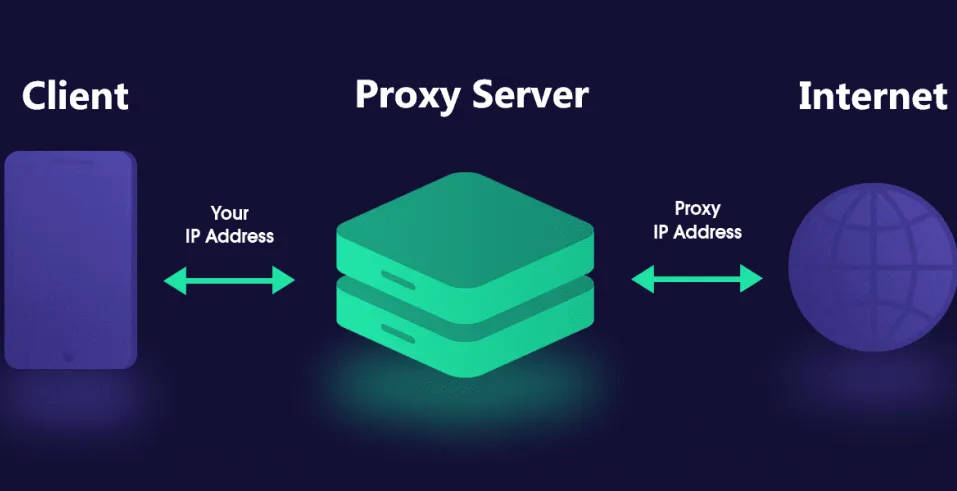different types of proxy servers currently available
There are many different types of proxy servers currently available, each with its own unique capabilities and features.
Reverse Proxy: A reverse proxy is a type of proxy server that takes requests from clients and forwards them to another server. A reverse proxy can be used to load balance traffic or improve performance by caching content from the destination server. It can mainly help improve server performance, security, and reliability.
Forward Proxy: A forward proxy is one of the most common types of proxy servers currently in use. Typically, it is used in order to transfer requests from a ‘sheltered’ network vis-a-vis a firewall (that decides whether or not a request should be allowed to pass through).
Forward proxies are most commonly used to boost internal network security by filtering internal/external exchange of information between ‘clients’ and ‘target sites’ on the web.
SSL Proxy: An SSL proxy is a type of transparent proxy server that encrypts/decrypts traffic between the client and the proxy server. SSL proxies are typically beneficial in obtaining granular application information so that companies can implement advanced/strong security protocols, as well as client/server ciphers. It also gives security teams improved visibility of potential threats that may be embedded in SSL encrypted traffic.
Anonymous Proxy: An anonymous proxy is a type of proxy server that does not reveal the identity of the client to the destination server. By hiding the origin IP address, ‘anonymizers’, as they are often called, enable companies to geo/IP-based-blocks as well as
misrepresentation of target data. They are also sometimes used in order to avoid having competitor marketing material or search results being tailored to your IP’s browsing history. This enables companies to get a non-biased view of the internet and avoid things like ‘cookies’ or other identifiers from impacting information being collected.
Transparent Proxy: A transparent proxy is a type of proxy server that can intercept a ‘client’s activity’ with a target site. For example, a student browsing Wikipedia on the university’s network may think he or she is viewing the original article but really it is being served to them via a transparent proxy running on the university’s network.
Transparent proxies are typically used in order to control user access to certain websites, protocols, or ports.
Public Proxy: A public proxy is a type of proxy server that is accessible to anyone on the Internet. It allows users to browse the web anonymously, but is typically considered unsafe and is not an option that should be considered by businesses. This is because security tends to be weak, defeating the purpose of using a proxy in the first place.
Data Center Proxy: A data center proxy is a type of proxy server that is located in a data center, and is not affiliated with any Internet Service Provider (ISP). A high number of IP addresses are typically assigned to a single server through which all designated traffic will then be routed.
Data center proxies are chosen by companies due to their speed, low operating costs, as well as maintaining data origin uniformity for use cases where this is integral.
Residential Proxy: A residential proxy is a type of proxy server that is based on an international network of real user IPs. Real individuals choose to opt their devices into the network in exchange for a benefit such as an ad-free app experience. In exchange, they allow businesses to route traffic vis-a-vis their devices.
Residential proxies can be used to collect data from sophisticated target sites, view information from a real/local consumer perspective, as well as enabling an increased quantity of concurrent data requests.
Internet Service Provider (ISP) Proxy: An ISP proxy is a type of proxy server that leverages IPs that are assigned real places of residence but are designated for commercial use. Target sites view, and treat requests as if they originated from real places of residence meaning companies can gain access to quicker speeds coupled with higher success rates.
ISP proxies can be used to manage social media/eCommerce accounts located in different geographies, as well as geo-specific web data collection regarding social sentiment, and product trends/pricing. As well as any other use case that can benefit from real domestic IPs in different geolocations.
Mobile Proxy: A mobile proxy is a type of proxy server that leverages 3/4G cellular devices, enabling users to choose from different mobile carriers.
Mobile proxies can be used to applications, ads, and mobile-based programs directly from a desktop in order to perform Quality Assurance (QA), as well as test geo-specific User Experiences (UX).
